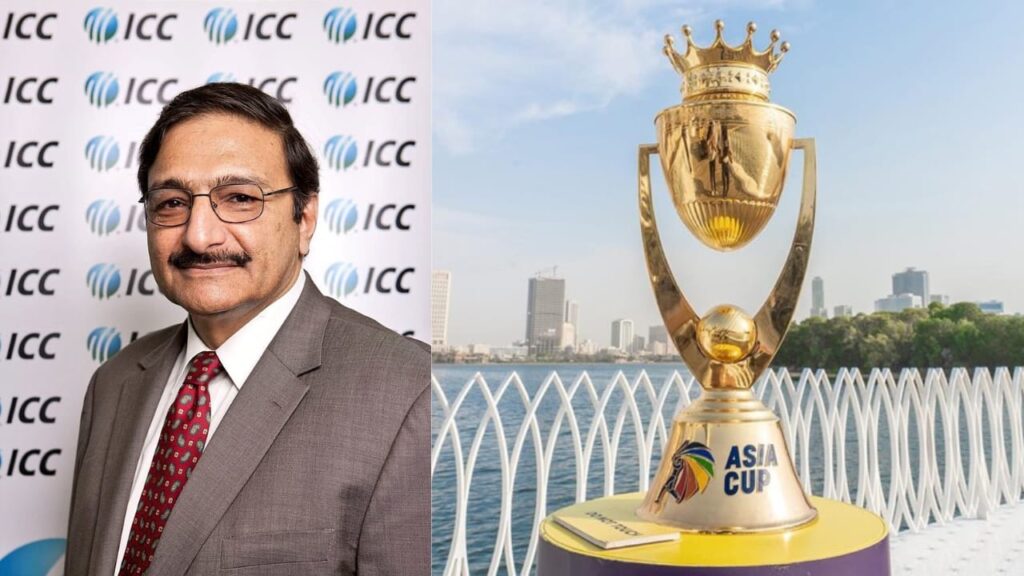
Zaka Ashraf, the incoming Pakistan Cricket Board (PCB) chief, has stirred a hornet’s nest by saying that he had rejected the hybrid-hosting model and did not agree with it. He has gone on to say that Pakistan should have hosted the entire tournament, and that as PCB boss, he will do all he can to safeguard Pakistan’s interests.
Noble intentions, no doubt, but deeply political as well. And a clear case of posturing and playing to the gallery. The hybrid model was proposed by the PCB, and accepted by the Asian Cricket Council (ACC), of which the PCB is a member. Based on the acceptance by the ACC, the dates for the tournament have also been announced. Najam Sethi, Ashraf’s predecessor, had even said that the schedule would be out within a week.
Now, Ashraf disagrees. While he is welcome to do so, the question is whether Ashraf is doing so as PCB chief or in an individual capacity. If this was a personal opinion, none of us need to take him seriously. Anyone can disagree and such points of view, when a decision has been firmed up, are best ignored.
However, if he is saying what he is as incoming PCB chief, it is indeed an issue. It is his organisation that mooted the idea. And it was the PCB that was party to it when the ACC accepted it. In fact, his predecessor as PCB chief welcomed it, and went to town with it. So, does Ashraf know the consequences of what he is demanding? Is it not known to him that when two institutions, the PCB and the ACC, have both agreed to the proposal and all the other boards have also bought into it, it is a done deal. So, why now? And what does he get by saying what he did?
Is it an attempt to show Sethi in bad light, and win over the hard-liners, with elections imminent and his appointment clearly a political one? An anti-India line indeed sells, and it is understandable why he decided to peddle it in the press conference. But what he did not think about is what it might do to Pakistan cricket. The team is one of the best, and the board managed to find a resolution to the Asia Cup stand-off after much effort.
Now by muddying the waters, Ashraf has put his own board in trouble. There will be legal and other repercussions if he even attempts to tamper with a decision that has been approved. As a former board chairman, he would know that better than anyone. And yet, he has played the hyper-nationalist card. For the benefit of the gallery. Trying to show Sethi as soft, and winning over a few by taking a firm position on India’s decision not to tour Pakistan.
Unfortunately, that position is not going to change. Asia Cup or no Asia Cup, India won’t travel to Pakistan. And if, after agreeing to everything, the PCB decides to backtrack, the entire ACC will be forced to oppose such fickleness. Whatever stance they then take will not help Pakistan cricket.
And it’s not only Ashraf. One of Pakistan’s government ministers went a step further, and said that if India didn’t travel to Pakistan, his country’s World Cup matches should also be played at a neutral venue. So, in 2015 and 2019, did Pakistan play on the moon? Were Australia, New Zealand and England not ‘neutral’ venues for every team apart from the designated hosts?
In this case, India is the sole host. The tournament is called the ICC World Cup and is conducted by the global governing body. The decision to award India hosting rights was signed off by all other ICC members, including Pakistan. It’s a bad look when a person in a position of authority cannot tell the difference between a bilateral series, and a global event.
Pakistan has lurched from crisis to crisis in recent times. And cricket has perhaps been one of the few saving graces. Does the minister and the government he represents want to deny permission to the cricket team to challenge for the World Cup? Does he want to deprive millions of cricket fans in Pakistan the chance to watch Babar Azam and his boys try to win the cup on Indian soil? Perhaps not. He is surely aware of the reality. Yet, he has upped the ante.
While such statements are expected from politicians, they don’t really go down well with sports fans. A Pakistani boycott of the World Cup is not just far-fetched, it is unviable both economically and politically.
So, while both these statements made for good headlines, they lacked depth and understanding of ground realities. Men in positions of power, whether a minister or a PCB chief, need to do better.
Also Read: “I rejected Asia Cup hybrid model”: Will Zaka Ashraf force a cancellation of the tournament?



